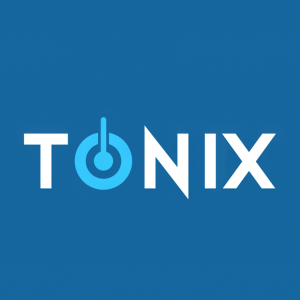Tonix Pharmaceuticals Announces Peer-Reviewed Publication in Cancer Cell Journal Highlighting Positive Preclinical Data of mTNX-1700 in Gastric Cancer Animal Models
Rhea-AI Summary
Tonix Pharmaceuticals (NASDAQ:TNXP) has published positive preclinical data in Cancer Cell journal regarding mTNX-1700, their experimental cancer treatment. The study demonstrated that combining mTNX-1700 with anti-PD1 antibody therapy significantly improved survival rates and reduced metastases in gastric cancer animal models.
The research showed that mTNX-1700, a fusion protein combining murine trefoil factor-2 (mTFF2) and murine serum albumin (MSA), effectively reduces immunosuppressive neutrophils and enhances anti-tumor immune responses. The human version, TNX-1700, is currently in preclinical development for gastric and colorectal cancers.
Key findings revealed that the combination therapy successfully shrank primary tumors, reduced liver and lung metastases, and activated cancer-killing CD8+ T cells while limiting neutrophil-mediated immune evasion.
Positive
- Combination therapy showed increased survival rates and decreased metastases in animal models
- Treatment successfully shrank primary tumors in multiple mouse models
- Demonstrated ability to overcome resistance to anti-PD-1 immunotherapy
- Positive correlation between treatment and activation of cancer-killing CD8+ T cells
Negative
- Still in preclinical development phase, far from market approval
- Results limited to animal models, human efficacy yet to be demonstrated
News Market Reaction
On the day this news was published, TNXP declined 5.71%, reflecting a notable negative market reaction.
Data tracked by StockTitan Argus on the day of publication.
Combination treatment of mTNX-1700 (mTFF2-MSA fusion protein) with anti-PD1 antibody was associated with increased survival and decreased metastases in animal models of gastric cancer relative to anti-PD1 treatment alone
mTNX-1700 treatment was associated with activation of cancer-killing CD8+ T Cells and limiting neutrophil-mediated immune evasion
TNX-1700 (hTFF2-HSA fusion protein) is in preclinical development for gastric and colorectal cancers
CHATHAM, N.J., July 02, 2025 (GLOBE NEWSWIRE) -- Tonix Pharmaceuticals Holding Corp. (Nasdaq: TNXP) (Tonix or the Company), a fully-integrated biopharmaceutical company with marketed products and a pipeline of development candidates, today announced the publication of a paper entitled, “A CXCR4 Partial Agonist, Improves Immunotherapy by Targeting Immunosuppressive Neutrophils and Cancer-Driven Granulopoiesis,”1 in the peer-reviewed journal Cancer Cell, that represents a collaboration between scientists at Tonix and Columbia University’s Medical School and presents data demonstrating that treatment with murine TNX-1700 (mTNX-1700) increased survival and decreased metastases in animal models of gastric cancer. The manuscript can be accessed here: http://bit.ly/3I7Wcvu.
“Addressing the root causes of resistance to immunotherapy in solid tumors is a hurdle for the successful application of immuno-oncology to anti-PD-1 resistant cancers,” said Seth Lederman, M.D., Chief Executive Officer of Tonix Pharmaceuticals. “The combination therapy of mTFF2-MSA with anti-PD1 treatment shows significant promise in reducing the ability of tumors to evade anti-PD-1 therapy in animal models. We believe the published data support further development of TNX-1700 as an approach to overcome resistance to anti-PD-1 immunotherapy in the treatment of gastric cancer and other tumors.”
The published studies examined mTNX-1700, which is a fusion protein of murine trefoil factor-2 (mTFF2) and murine serum albumin (MSA). The human version, TNX-1700 is a fusion protein of human TFF2 (hTFF2) and human serum albumin (HSA) that is under development for the treatment of gastric and colorectal cancers.
Dr. Lederman added, “The study showed that in several mouse models, mTNX-1700 plus anti-PD-1 shrank primary tumors, cut liver and lung metastases, and increased survival compared to anti-PD-1 alone. These data show that fine-tuned modulation of CXCR4 can dismantle neutrophil-driven immune suppression and revive checkpoint efficacy without compromising normal myelopoiesis. We are excited, through our collaboration with Columbia University, to continue studies to identify potential clinical biomarkers through preclinical models while enhancing our understanding of the relationship between the role of TFF2 in overcoming resistance to anti-PD1 therapy in the tumor microenvironment (TME).”
Immunosuppressive neutrophils, also known as polymorphonuclear myeloid-derived suppressor cells (PMN-MDSCs), are a major component in solid tumors that significantly hinder anti-tumor activity2,3. Despite being short-lived, the continuous replenishment of PMN-MDSCs from the bone marrow sustains their potent immunosuppression in the TME4. Stromal cells in the TME promote immunosuppression by recruiting MDSCs via secretion of CXCL12. Trefoil Factor 2 (TFF2), a secreted peptide of the trefoil factor family, has displayed activity as a partial agonist of CXCR45,6. The Cancer Cell publication describes data demonstrating that TFF2-MSA selectively reduces immunosuppressive neutrophils and cancer-driven granulopoiesis. Treatment with TFF2-MSA, in combination with an anti-PD1 antibody, induced robust anti-tumoral CD8+ T cell responses, inhibiting tumor invasion. This combination of the mTNX-1700 with anti-PD1 therapy has been shown to reduce tumor size and increase survival in these animal models. TFF2 reduction correlated with elevated PMN-MDSCs in gastric cancer patients, highlighting the potential negative correlation between TFF2 and PMN-MDSCs levels while promoting a T-cell rich microenvironment and inducing an increase in CD8+ T cells in the tumor.
About Trefoil Factor Family Member 2 (TFF2)
Human TFF2 is a secreted protein, encoded by the TFF2 gene in humans, that is expressed in gastrointestinal mucosa where it functions to protect and repair mucosa. TFF2 is also expressed at low levels in splenic immune cells and is now appreciated to have intravascular roles in the spleen and in the tumor microenvironment. In gastric cancer, TFF2 is epigenetically silenced, and TFF2 is suggested to be protective against cancer development through several mechanisms. Tonix is developing TNX-1700 for the treatment of gastric and colorectal cancers under a license from Columbia University. The inventor of the core technology at Columbia is Dr. Timothy Wang, who is an expert in the molecular mechanisms of carcinogenesis whose research has focused on the carcinogenic role of inflammation in modulating stem cell functions. Dr. Wang demonstrated that knocking out the mTFF2 gene in mice leads to faster tumor growth and that overexpression of TFF2 markedly suppresses tumor growth by curtailing the homing, differentiation, and expansion of MDSCs to allow activation of cancer-killing CD8+ T cells. He went on to show that a novel engineered form of recombinant murine TFF2 (mTFF2-CTP) had an extended half-life in vivo and was able to suppress MDSCs and tumor growth in an animal model of colorectal cancer. Later, he showed in gastric cancer models that suppressing MDSCs using chemotherapy enhances the effectiveness of anti-PD1 therapy and significantly reduces tumor growth. Dr. Wang proposed the concept of employing recombinant TFF2 in combination with other therapies in cancer prevention and early treatment.
1Qian, J. et al. Cancer Cell. 2025. on-line: https://doi.org/10.1016/j.ccell.2025.06.006.
2Kim W, et al. Gastroenterology. 2021. 160(3):781-796
3Veglia F, et al. J Exp Med. 2021. 218(4):e20201803.
4Colligan SH, et al. J Clin Invest. 2022. 132(23):e158661.
5Dubeykovskaya Z, et al. J Biol Chem. 2009. 284(6):3650-62.
6Dubeykovskaya Z, et al. Nat Commun. 2016. 7:10517.
Tonix Pharmaceuticals Holding Corp.*
Tonix is a fully-integrated biotechnology company focused on transforming therapies for pain management and vaccines for public health challenges. Tonix’s development portfolio is focused on central nervous system (CNS) disorders. Tonix’s priority is to advance TNX-102 SL, a product candidate for the management of fibromyalgia, for which an NDA was submitted based on two statistically significant Phase 3 studies for the management of fibromyalgia and for which a PDUFA (Prescription Drug User Fee act) goal date of August 15, 2025 has been assigned for a decision on marketing authorization. The FDA has also granted Fast Track designation to TNX-102 SL for the management of fibromyalgia. TNX-102 SL is also being developed to treat acute stress reaction and acute stress disorder under a Physician-Initiated IND at the University of North Carolina in the OASIS study funded by the U.S. Department of Defense (DoD). Tonix’s immunology development portfolio consists of biologics to address organ transplant rejection, autoimmunity and cancer, including TNX-1500, which is an Fc-modified humanized monoclonal antibody targeting CD40-ligand (CD40L or CD154) being developed for the prevention of allograft rejection and for the treatment of autoimmune diseases. Tonix’s infectious disease portfolio includes TNX-801, a vaccine in development for mpox and smallpox, as well as TNX-4200 for which Tonix has a contract with the U.S. DoD’s Defense Threat Reduction Agency (DTRA) for up to
* Tonix’s product development candidates are investigational new drugs or biologics; their efficacy and safety have not been established and have not been approved for any indication.
Zembrace SymTouch and Tosymra are registered trademarks of Tonix Medicines. All other marks are property of their respective owners.
This press release and further information about Tonix can be found at www.tonixpharma.com.
Forward Looking Statements
Certain statements in this press release are forward-looking within the meaning of the Private Securities Litigation Reform Act of 1995. These statements may be identified by the use of forward-looking words such as “anticipate,” “believe,” “forecast,” “estimate,” “expect,” and “intend,” among others. These forward-looking statements are based on Tonix's current expectations and actual results could differ materially. There are a number of factors that could cause actual events to differ materially from those indicated by such forward-looking statements. These factors include, but are not limited to, risks related to the failure to obtain FDA clearances or approvals and noncompliance with FDA regulations; risks related to the failure to successfully market any of our products; risks related to the timing and progress of clinical development of our product candidates; our need for additional financing; uncertainties of patent protection and litigation; uncertainties of government or third party payor reimbursement; limited research and development efforts and dependence upon third parties; and substantial competition. As with any pharmaceutical under development, there are significant risks in the development, regulatory approval and commercialization of new products. Tonix does not undertake an obligation to update or revise any forward-looking statement. Investors should read the risk factors set forth in the Annual Report on Form 10-K for the year ended December 31, 2024, as filed with the Securities and Exchange Commission (the “SEC”) on March 18, 2025, and periodic reports filed with the SEC on or after the date thereof. All of Tonix's forward-looking statements are expressly qualified by all such risk factors and other cautionary statements. The information set forth herein speaks only as of the date thereof.
Investor Contact
Jessica Morris
Tonix Pharmaceuticals
investor.relations@tonixpharma.com
(862) 799-8599
Brian Korb
astr partners
brian.korb@astrpartners.com
(917) 653-5122
Media Contact
Ray Jordan
Putnam Insights
ray@putnaminsights.com
(949) 245-5432
Indication and Usage
Zembrace® SymTouch® (sumatriptan succinate) injection (Zembrace) and Tosymra® (sumatriptan) nasal spray are prescription medicines used to treat acute migraine headaches with or without aura in adults who have been diagnosed with migraine.
Zembrace and Tosymra are not used to prevent migraines. It is not known if Zembrace or Tosymra are safe and effective in children under 18 years of age.
Important Safety Information
Zembrace and Tosymra can cause serious side effects, including heart attack and other heart problems, which may lead to death. Stop use and get emergency help if you have any signs of a heart attack:
- discomfort in the center of your chest that lasts for more than a few minutes or goes away and comes back
- severe tightness, pain, pressure, or heaviness in your chest, throat, neck, or jaw
- pain or discomfort in your arms, back, neck, jaw or stomach
- shortness of breath with or without chest discomfort
- breaking out in a cold sweat
- nausea or vomiting
- feeling lightheaded
Zembrace and Tosymra are not for people with risk factors for heart disease (high blood pressure or cholesterol, smoking, overweight, diabetes, family history of heart disease) unless a heart exam shows no problem.
Do not use Zembrace or Tosymra if you have:
- history of heart problems
- narrowing of blood vessels to your legs, arms, stomach, or kidney (peripheral vascular disease)
- uncontrolled high blood pressure
- hemiplegic or basilar migraines. If you are not sure if you have these, ask your provider.
- had a stroke, transient ischemic attacks (TIAs), or problems with blood circulation
- severe liver problems
- taken any of the following medicines in the last 24 hours: almotriptan, eletriptan, frovatriptan, naratriptan, rizatriptan, ergotamines, or dihydroergotamine. Ask your provider for a list of these medicines if you are not sure.
- are taking certain antidepressants, known as monoamine oxidase (MAO)-A inhibitors or it has been 2 weeks or less since you stopped taking a MAO-A inhibitor. Ask your provider for a list of these medicines if you are not sure.
- an allergy to sumatriptan or any of the components of Zembrace or Tosymra
Tell your provider about all of your medical conditions and medicines you take, including vitamins and supplements.
Zembrace and Tosymra can cause dizziness, weakness, or drowsiness. If so, do not drive a car, use machinery, or do anything where you need to be alert.
Zembrace and Tosymra may cause serious side effects including:
- changes in color or sensation in your fingers and toes
- sudden or severe stomach pain, stomach pain after meals, weight loss, nausea or vomiting, constipation or diarrhea, bloody diarrhea, fever
- cramping and pain in your legs or hips; feeling of heaviness or tightness in your leg muscles; burning or aching pain in your feet or toes while resting; numbness, tingling, or weakness in your legs; cold feeling or color changes in one or both legs or feet
- increased blood pressure including a sudden severe increase even if you have no history of high blood pressure
- medication overuse headaches from using migraine medicine for 10 or more days each month. If your headaches get worse, call your provider.
- serotonin syndrome, a rare but serious problem that can happen in people using Zembrace or Tosymra, especially when used with anti-depressant medicines called SSRIs or SNRIs. Call your provider right away if you have: mental changes such as seeing things that are not there (hallucinations), agitation, or coma; fast heartbeat; changes in blood pressure; high body temperature; tight muscles; or trouble walking.
- hives (itchy bumps); swelling of your tongue, mouth, or throat
- seizures even in people who have never had seizures before
The most common side effects of Zembrace and Tosymra include: pain and redness at injection site (Zembrace only); tingling or numbness in your fingers or toes; dizziness; warm, hot, burning feeling to your face (flushing); discomfort or stiffness in your neck; feeling weak, drowsy, or tired; application site (nasal) reactions (Tosymra only) and throat irritation (Tosymra only).
Tell your provider if you have any side effect that bothers you or does not go away. These are not all the possible side effects of Zembrace and Tosymra. For more information, ask your provider.
This is the most important information to know about Zembrace and Tosymra but is not comprehensive. For more information, talk to your provider and read the Patient Information and Instructions for Use. You can also visit https://www.tonixpharma.com or call 1-888-869-7633.
You are encouraged to report adverse effects of prescription drugs to the FDA. Visit www.fda.gov/medwatch, or call 1-800-FDA-1088.







